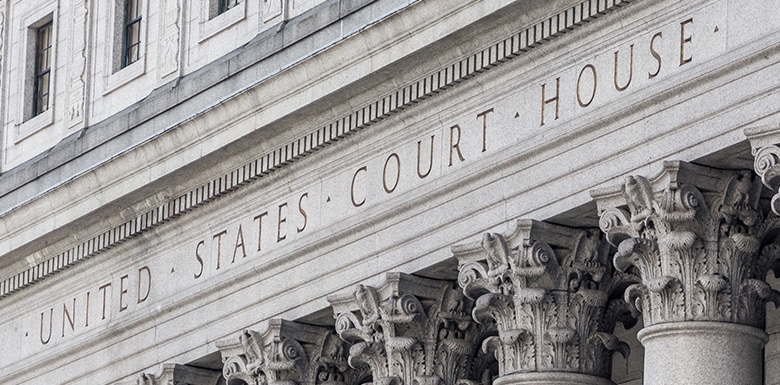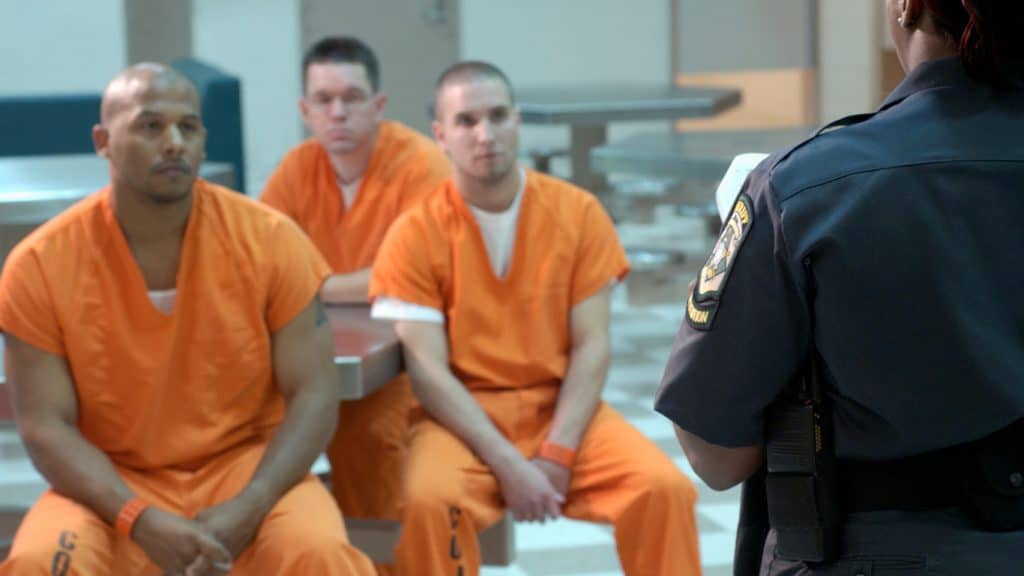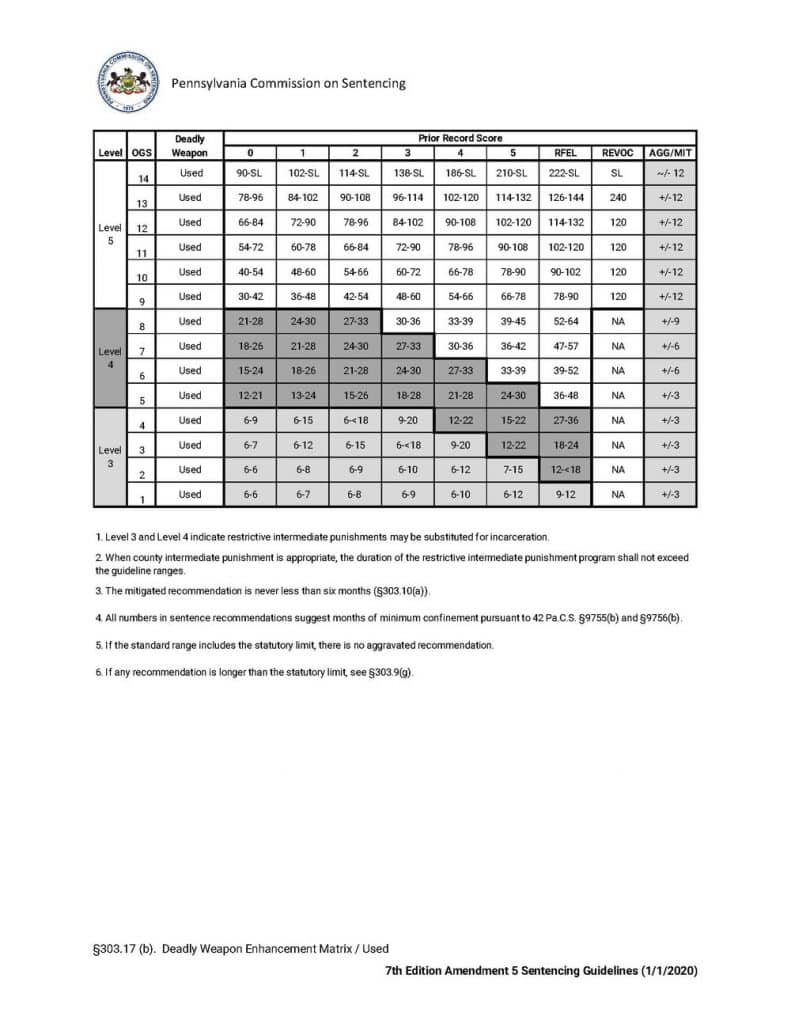What is the Criminal Process in Greensburg and other areas Near Me?
Table of Contents
How does a criminal case proceed?
How do criminal appeals work?
What is post-conviction relief?
Can a criminal record be expunged?
What are the sentencing guidelines for criminals?
What is a gravity score?
How are parole violations handled?
Contact an experienced Attorney
The Pennsylvania legal system can be complex, but it doesn’t have to be confusing.
Whether this is your first time dealing with the stress of a criminal charge or you’ve had some unpleasant experiences with the Pennsylvania legal system in the past, here at Worgul, Sarna and Ness Criminal Defense Attorneys, LLC we’re happy to help clarify how the criminal process works and fight for your best possible outcome.
Greensburg Criminal Process: A Brief Overview
Pennsylvania has 67 counties and each county has a district attorney and a court of common pleas. Each county has magisterial district courts. For Greensburg, and other areas near you, this is the Westmoreland County Magisterial District Court on Greengate Road. Magistrates (or district justices) preside over these courts, which handle summary offenses, preliminary hearings and arraignments for misdemeanor and felony cases, as well as some civil matters like landlord-tenant issues and small claims cases.
1. How Does a Criminal Case Proceed in Greensburg? The Steps
The offense occurs.
Charges get filed. The Greensburg Police or Pennsylvania State Police charge the defendant, or person they believe to have committed the alleged offense. Alternatively, the police are notified of an offense and law enforcement begins to investigate. Typically in DUI or underage drinking cases, the police will charge a person right on the spot. In other instances, like murder or fraud, the police are notified and begin investigating.
Booking. In cases where someone is arrested in the Greensburg area, or nearby, the defendant is brought to Westmoreland County Prison for booking. The defendant’s personal information will be recorded, along with fingerprinting and photographs. In Pennsylvania, you also receive a medical screening at the time of booking before you are placed in a holding cell. Meanwhile, the officer and prosecutor will begin preparing a complaint.
Police or private citizen file a complaint. Following the investigation, the police file a complaint with the magistrate. This includes the identity of the defendant along with the offenses charged and a brief summary that explains what those charges are based on. A private citizen can also file a complaint but this has to be approved by an assistant district attorney first.
Summons or arrest warrant is issued. After receiving the complaint, the magistrate will issue a summons or arrest warrant depending on the gravity of the crime. A summons provides notice of the scheduled preliminary hearing in front of a magistrate and is seen to be less serious than an arrest warrant.
Bond and release. Bail must be set within 12 hours of filing the complaint. Not all situations require bail; some defendants are released on their own recognizance without bail. If a defendant is released and fails to show up for their court date, a warrant for his or her arrest will be issued.
Preliminary arraignment. In cases where a Greensburg resident has been issued an arrest warrant or where there was a warrantless arrest (like in a DUI where the police officer pulled over the driver), the defendant has to appear before the magistrate at the Westmoreland County Magisterial District Court for a preliminary arraignment. This typically occurs within 72 hours of arrest. The defendant is officially notified of the complaint and provided with a copy of it. At this time, the defendant is advised of his or her rights and a preliminary hearing is scheduled.
Preliminary hearing. The preliminary hearing which shall not be later than 14 days after the preliminary arraignment if the defendant is in custody on the current case only and no later than 21 days if the defendant is not in custody. At this time a defendant again comes before the magistrate. The Commonwealth is required to present evidence that a crime has been committed and that the defendant is the person who committed that crime. This is known as a prima facie case. Typically the person representing the Commonwealth is an assistant district attorney but it could also be a police officer. If the prima facie case is presented, the case moves on for formal changes. If it is not, the case should be dismissed.
Information is filed. If the case moves on for formal charges, the magistrate sends a notice to the Westmoreland County Clerk of Courts and the district attorney. The district attorney’s office files “information,” which is a formal charging document that outlines the case against the defendant. At this time the district attorney can also decide not to move forward with formal charges and prosecution by declining to file information or by changing or deleting charges.
Formal arraignment. Though the formal arraignment sounds more complex than the preliminary arraignment, it typically is not. At this time the defendant receives a copy of the information (formal charges) and is advised of his or her rights. One example is the right to file a pretrial pleading. Generally, neither the district attorney nor the judge presiding over the court of common pleas is present at the formal arraignment. After the formal arraignment, any and all pretrial motions should be filed. An experienced defense attorney can request items for discovery, motions for continuance, severance, suppression, and so on depending on the unique circumstances of the defendant’s case. In term, the district attorney’s office will respond to the defendant’s pretrial pleadings provided that they are sent within thirty (30) days of the formal arraignment.
Status Conference. At the status conference or pretrial conference, the defendant, the defendant’s attorney, and an assistant district attorney appear before the judge and the case’s future (regarding trial or pleas) will be determined. The defendant can decide to take a plea or proceed to trial. The plea options available include:
– Negotiated plea (plea bargain)
– Open plea
– Nolo contendere plea (no contest – the defendant neither admits nor denies the charges)
– Not guilty
Trial. In Pennsylvania, a defendant has the right to decide what kind of trial he or she will have – a trial before a judge or a trial by jury. Many criminal defendants decide to request a jury trial. Most trials are done within 180 days (or roughly six months). The Commonwealth must bring your case to trial within a certain period of time. For example, non-homicide felony cases must be ready to try within six months of filing the complaint, while misdemeanors must be ready to try within 90 days of filing the complaint. At the trial, the Commonwealth bears the burden of establishing the defendant committed the crime for which he or she is accused beyond a reasonable doubt. If the defendant is found guilty, sentencing could occur immediately or be deferred. If the defendant is found not guilty, he or she will be discharged.
Sentencing. Pennsylvania has mandatory minimum sentences for certain crimes along with sentencing guidelines and gravity scores, which makes this a more confusing part of the criminal process for defendants. Sentences are typically at a judge’s discretion and will consider the information in the pre-sentence report. A judge might also factor in the defendant’s prior criminal record and factors of the crime to decide on a minimum jail or prison sentence. The judge may also incorporate other penalties in the sentencing such as fines, probation, community service, and so on. At this time, the judge may also require the defendant to make financial restitution to any victims who have suffered because of the offense.
2. How do criminal appeals in Greensburg work? How is someone eligible for appeals?
If you have been found guilty of a crime, you have a right to an appeal. Nearby Greensburg residents who are looking to appeal a conviction would go to a higher court, the Summary Appeals Court in Pittsburgh, which reviews your trial and can challenge the outcome of your case. Some trial errors that could be reviewed include:
- Ineffective defense from your previous attorney
- Prosecutors’ mishandling
- Judicial errors
Appeals are a complicated and lengthy process and should only be handled by an experienced criminal appeals attorney. He or she can get involved right after your verdict to request the judge to review your case before sentencing, which can make a significant difference in your future.
3. What is post-conviction relief?
In some cases, defendants can have their convictions reviewed. This stands under the Post Conviction Relief Act. This begins in the court of common pleas where the trial happens, and review goes to the Superior Court. Defendants can, in some instances, also request a federal review of their Pennsylvania convictions. To do this, a defendant would have to file a writ of habeas corpus in the necessary federal district court. (If you’re looking to have a formal review of your conviction or possibly move this up for federal review, an experienced defense attorney who has handled state and federal criminal cases can be extremely helpful. Not all attorneys have this experience.)
4. Can a criminal record be expunged? Can I be pardoned?
As you know, a criminal charge on your record can make a big – and negative – impact on your life. It could hurt your chance to get a job, maintain current employment, keep or obtain a security clearance, or cause significant increases in insurance premiums.
In Pennsylvania, criminal charges can be expunged under certain circumstances under 18 Pa.C.S. § 9122. These are not, however, automatic – you must petition the court for expungement. Pardons are slightly different in that you have to apply for a pardon for a specific offense. If it’s granted, it will restore some of your lost rights and privileges after conviction. If the pardon is granted, you can then start the process for record expungement.
A criminal charge can be expunged for the following types of records:
- Not-guilty verdicts in criminal cases
- Dismissal of criminal charges
- Withdrawal of criminal charges
- Participation in Accelerated Rehabilitative Disposition (ARD)
- Probation without verdict
- Convictions for summary offenses provided that the defendant has been free of arrest or prosecution for five (5) years following the conviction for the summary offense
- Juvenile convictions and records after certain lengths of time have passed under 18 Pa.C.S. § 9123
- Criminal convictions where the defendant is 70 years old (or older) and has been free of arrest or prosecution for 10 years following the conviction or release for the criminal conviction
- Defendant has been deceased for three (3) or more years
- Underage drinking convictions where the defendant is now 21 years old or older
A pardon requires a separate application and review by the pardon board. They will review the case, the circumstance of the offense, and conduct an interview in order to determine whether a pardon will be granted. They might ask questions like why you are asking for a pardon, whether you have violated terms of your sentencing, and what you are doing with your life.
5. What are the sentencing guidelines for Greensburg and other Nearby Residents?
You may have heard about Pennsylvania’s sentencing guidelines. They are used to determine the sentence for criminal offenses, and judges take this information to help decide on a sentence. The sentencing guidelines include offense gravity scores, which represent the seriousness of the crime. Judges also can use their discretion and will sometimes deviate from the sentencing guidelines. Your prior criminal record also plays into the sentencing.
Judges cannot deviate from sentencing guidelines where the offense has a mandatory minimum sentencing and you are required to serve jail time as specified by the guidelines. Judges also cannot sentence you for more jail time than is specified by law.
6. What is a gravity score?
Offense gravity scores (OGS) are part of Pennsylvania’s sentencing guidelines. An OGS is represented by a number and the more serious the offense is, the higher the OGS. The judge who sentences you if you’re found guilty of an offense will use the OGS for your offense to determine your sentence. The less serious the offense and the fewer convictions you have on your prior criminal record, the better your possible sentence could be.
Judges cannot deviate from the sentencing guidelines if the offense you’re convicted of requires a mandatory minimum sentence or if it comes with maximum penalties.
7. How are parole violations handled in Greensburg?
You could be charged with violation of parole if you fail to report to your parole officer, live in a residence not approved by the parole board, fail to pay court costs and restitution fees, fail to comply with state, federal, and local laws, or fail to obtain treatment as designated by part of your original sentence. These are technical violations of parole. The other type of parole violation is a convicted parole offense, which means you have been charged or convicted of another crime while serving parole for a previously convicted offense.
If you have been arrested for violating parole, you have the right to a parole violation hearing. Having an attorney on your side is very important for these hearings because the Commonwealth is not required to prove that you violated parole beyond a reasonable doubt. They only have to show that you more than likely violated one of your parole requirements (preponderance of evidence). This is much easier to do, so having a defense attorney speak on your behalf can make a difference in your penalties.
Under 61 Pa.C.S. § 6138, an individual who violates the terms of parole or commits a new offense while on parole can be required to serve the maximum sentence for the original offense. Technical parole violators may be penalized with treatment programs, committed to prison, or have fewer freedoms, all of which depend on how severe the violation was. Convicted parole violators are returned to prison and required to serve time remaining on their sentence. Time spent on parole will not count towards duration of their sentence.
8. Contact an Experienced Defense Attorney
For more information on how we can help you in fighting criminal charges, please call Worgul, Sarna & Ness, Criminal Defense Attorneys, LLC at (724) 834-1275. You can also visit us online to learn more about our legal services in Greensburg and throughout Westmoreland County. We can set up a no-cost appointment for you to discuss your situation with a knowledgeable embezzlement attorney.
Greensburg Criminal Attorney Review
⭐⭐⭐⭐⭐ Very professional. Very helpful. Highly recommended. I was very nervous at the beginning but Matt, Samir and Mike all made me feel assured that they cared about the outcome of my case and the outcome ended up being very favorable at the end of it all in light of what I was potentially facing. – George
View more of our reviews on Google.











